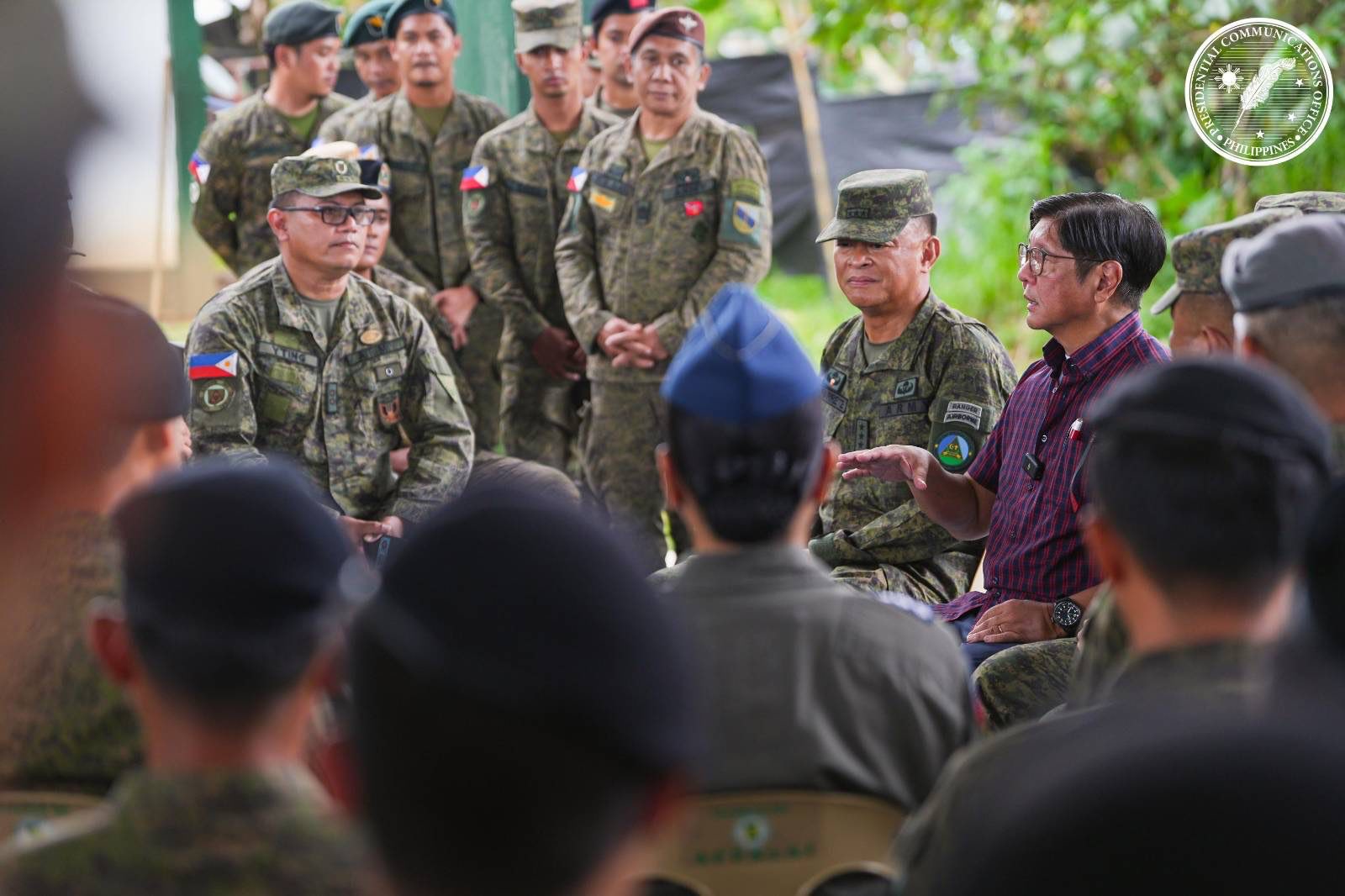
After hearing both the personal and professional concerns of soldiers stationed in Marawi City, President Ferdinand R. Marcos Jr. on Monday vowed to take concrete steps to improve the welfare of the troops and their families.
President Marcos met with troops of the 103rd Infantry “Haribon” Brigade under the 1st Infantry Tabak Division of the Philippine Army stationed at Kampo Ranao, Marawi City, as one of the stops of his visit.
During his “Talk with the Troops,” the President listened to the persistent challenges soldiers faced within the 42-hectare military camp, including infrastructure limitations, logistical constraints, and service gaps that affected operations and personnel welfare.
President Marcos committed to studying long-term solutions, including enhanced health insurance, educational scholarships for soldiers’ children, and support for garbage trucks to aid in camp maintenance.
On the welfare front, the President acknowledged the need to reform the system for the standard combat allowance, which has increased by PhP150 this year.
“Pag-aaralan natin ang iba’t ibang sistema sa pagbibigay ng combat pay,” President Marcos said.
One of the concerns raised by the soldiers was the lack of proper barracks and rest areas. With limited space available, many are forced to live in converted facilities, a daily reminder of the hardships they face while serving the nation.
The unfinished multi-purpose building, which still lacks a roof, and the absence of visitor holding areas further highlight the need for improved infrastructure.
In addition, the troops requested enhancements in night fighting capabilities, including night vision goggles and a stronger Intelligence, Surveillance, and Reconnaissance (ISR) system.
The brigade also faces logistical hurdles, including the absence of garbage and fire trucks, such that military vehicles are sometimes used for waste disposal.
Water supply disruptions that affect the entire city also impact daily camp operations. Medical support is another concern, as there is currently no stationed physician, forcing soldiers to seek emergency care in nearby regional hospitals. | PND

